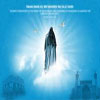
The question of infallibility leads us to the question of Divine designation. The Shi'ah scholars say that Imamate is a favour of Allah, and as such it must exist. As this favour entails infallibility, an Imam must necessarily be infallible and for this very reason should be divinely designated, for it is beyond the power of the people to determine who is infallible. As the people cannot choose a Prophet, they cannot choose an Imam also. As a Prophet is appointed by Allah, similarly an Imam is also appointed by Him.
The only difference is that a Prophet is recognized by means of the signs which he shows and the miracles which he works, whereas an Imam is introduced by the Prophet. That is what we meant by designation. An Imam is to be designated by the Prophet and not appointed by the choice of the people. Thus the Shi'ah scholars have advanced from the question of infallibility to that of designation. Now the fourth step is the Imamate of Ali.
Khwaja Nasiruddin says that infallibility and designation are the two characteristics which are applicable to Imam Ali only.
There is no difference of opinion about the fact that the Holy Prophet did not designate any other person. It is not that we say that the Holy Prophet designated Imam Ali and others say that he designated someone else. In fact the question is whether he did or did not designate anybody. If he did, the designated person can be none but Imam Ali. All that we say is that the Holy Prophet must have designated someone to be an Imam after him, and if so, he cannot have designated anyone else, for no counter claim exists.
The Sunnis deny the very designation. Even the caliphs did not claim to have been designated by the Holy Prophet. Their followers also make no such claim. Therefore this is not the point at issue.
The same is true of infallibility. Neither the caliphs claimed to be infallible, nor do their followers say that they were infallible. In contrast, the caliphs expressly confessed that they made mistakes. As we have already pointed out, according to the Sunni point of view the question of Imamate is exclusively tantamount to that of the administration of government.
As such according to them the question of infallibility does not arise. The Sunnis believe that although the caliphs were not infallible and made many mistakes, they were irreproachable to the humanly possible extent and were quite fit to lead prayers. The Sunnis do not claim that the caliphs held any position higher than this. They report, as affirmed by Mulla Ali Qushchi, that Abu Bakr used to say that he had a Devil which seized him occasionally. He asked the people to guide him aright if they found him going astray. Umar on many occasions, some say on 70 occasions, admitted that he would have been ruined if there had not been Ali.
It is not a disputable point between the Shi'ah and the Sunnis that he said so many times. On numerous occasions it so happened that he issued a wrong order and Imam Ali pointed out his mistake which he admitted. As such neither the caliphs ever claimed that they were not infallible, nor do others claim that they were so.
If the question of Imamate is considered from this high level, that is the level of Divine favour, infallibility and Divine ordination, nobody other than Imam Ali can claim to be on this level. This is the scholastic form of the question, and in this case we begin from the top. We have said that as Prophethood is indispensable and at the same time a Divine favour, so should be Imamate also. Now let us see whether in actual practice also it is so, and whether the Holy Prophet has or has not designated Imam Ali. For this purpose let us look into the texts. In this connection there is one more point worth mentioning.
The question is why we should after all adopt a scholastic method and should begin from the top. Why should we not begin from the bottom, and discuss the position as it actually exists? The scholastic theologians begin from the top and then gradually come down to the position as it exists on the ground. But in this case the question arises what we have to do with such points as to whether Imamate is a Divine favour, and if so, an Imam should naturally be infallible and designated. These should actually amount to prescribing a duty for Allah. Therefore we should better go after what actually exists.
If it is proved that the Holy Prophet has made a designation that is enough for us. It is not necessary to prove rationally that Imamate is a Divine favour and that an Imam must be infallible and designated. Let us see what arguments the Shi'ah has in this connection. It may be noted in this connection that the Sunnis either do not accept that such texts exist or interpret them differently. In many cases they do not deny the reports totally, but allege that they are isolated reports, not continuous or mutawatir.
source : www.tebyan.net













